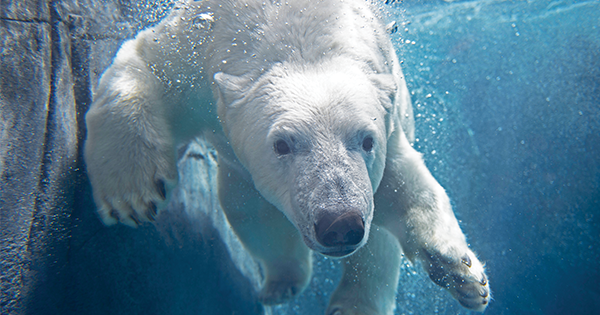
In the Arctic, thinning ice, higher tides, and unpredictable weather have been changing Alaska natives’ way of life for years. The indigenous people have always hunted animals, including polar bears. Now they rarely hunt them because of the dwindling population and concern about extinction.
“More than 40 years ago, we told scientists that our ice was thinner,” says Ralph Anungazuk, one of the 145 residents of the village of Wales, the westernmost point of mainland Alaska. “But they didn’t believe us until they studied the ice conditions up here.”
Anungazuk, who belongs to the Iñupiaq and St. Lawrence Island Yupik people, tells his story on a video at the Saint Louis Zoo’s polar bear habitat—part of a new partnership between the zoo and Alaskan tribes.
When the Saint Louis Zoo adopted a polar bear in 2015, it began a program that transmits tribal “video postcards.” In each five-minute video, directed by students from local middle and high schools, with help from the Alaska Teen Media Institute, adults explain how their lives have changed. Anungazuk’s video is the first to be screened at the zoo, and at least three more will be shown on site and on the zoo’s YouTube channel later this year.
“Polar bears are still an essential spiritual resource and play a huge part in daily life in Alaska Native villages,” says Elizabeth Shea, regional coordinator at the Alaska Nanuuq Commission, an agency elected by the tribes to represent them to the U.S. government. “There are centuries of relationships and legends.”
The commission plans to encourage tribes to collect data on the animals: not just the number of polar bears in and near their villages, but also what the bears are eating and where they are migrating.

